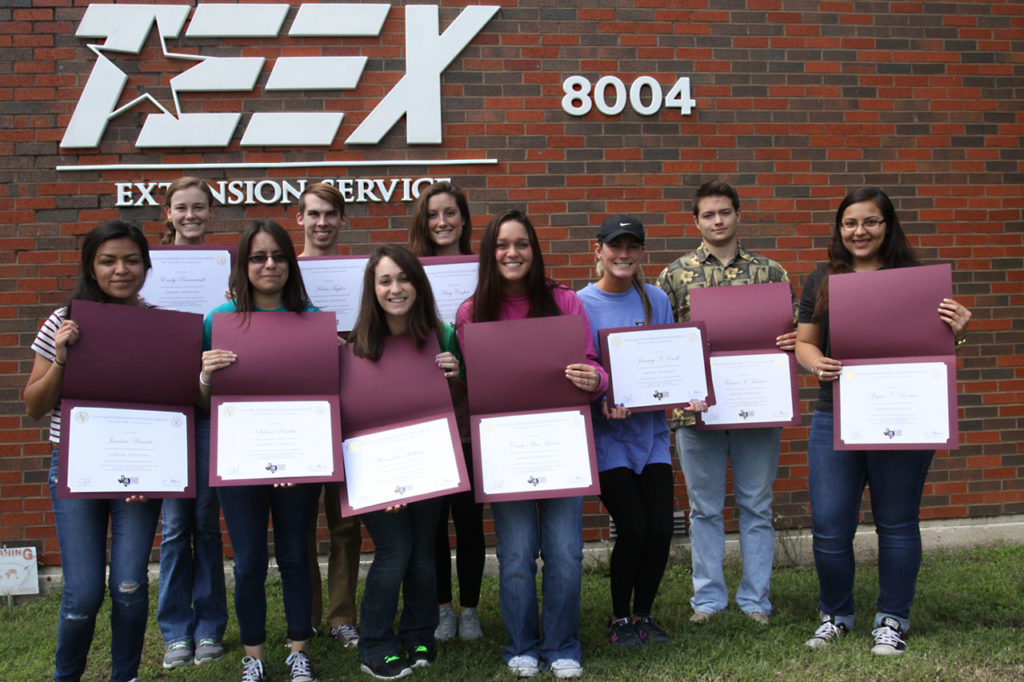
Ten FIVS students received their Forensic Technician certificates after the Latent Print Processing course in May. Back row: Emily Parsoneault, Kevin Taylor, Amy Cooper, Journey Ewell, Tanner Truelove, and Zayra Ramos. Front row: Jasmin Arevalo, Selena Portillo, Alex Williams and Casey Hearn. Photo by Rob Williams
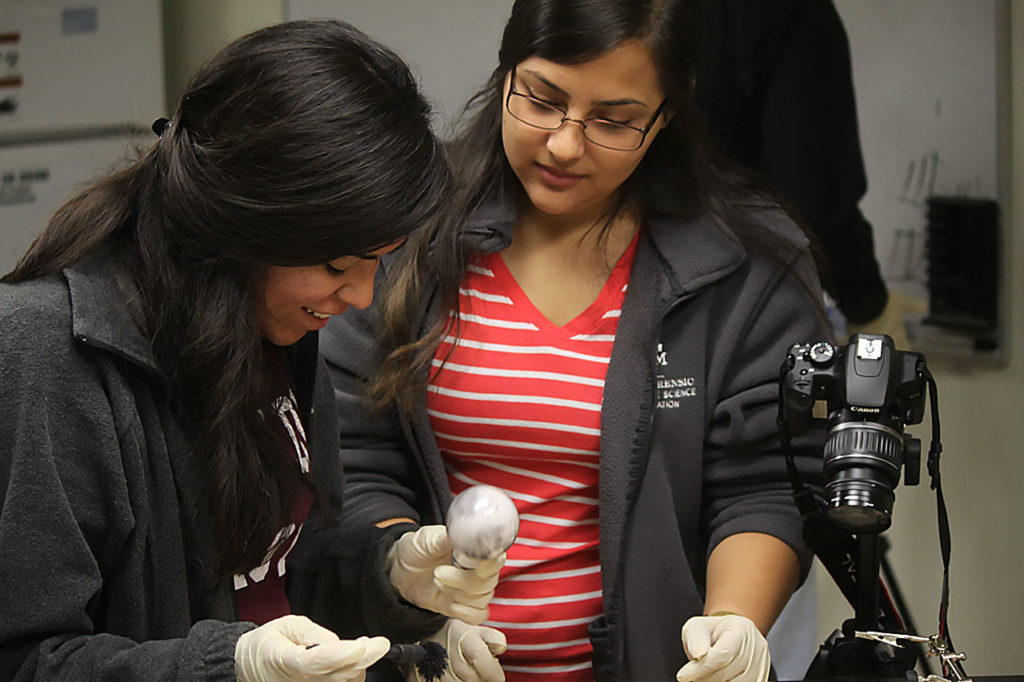
Jasmin Arevalo, left, and Zayra Ramos examining fingerprints on a light bulb during an activity on latent print processing. Photo by Rob Williams
BRYAN, Texas—Ten Forensic and Investigative Sciences students started their summers off right after they received their Forensic Technician certificates from the Texas Engineering Extension Service on Friday, May 20.
FIVS students Kevin Taylor, Emily Parsenault, Tanner Truelove, Amy Cooper, Zayra Ramos, Journey Ewell, Jasmin Arevalo, Selena Portillo, Alex Williams and Casey
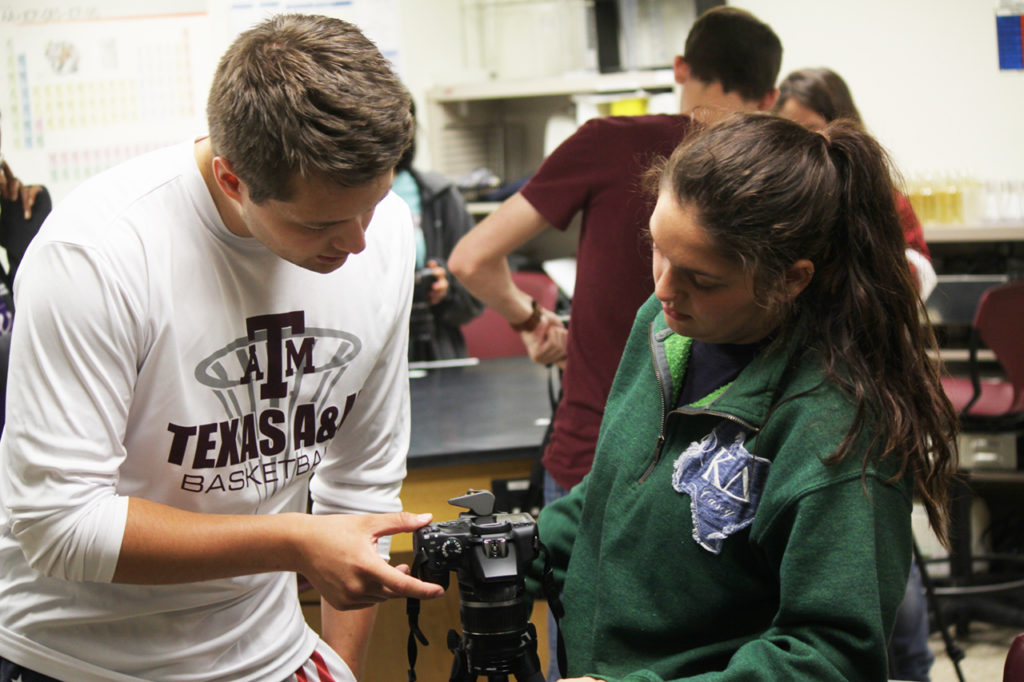
Tanner Truelove and Casey Hearn checking a photo of a fingerprint. Photo by Rob Williams
Hearn received their certificates after completing the Latent
Print Processing course held at Riverside Campus during the May minimester on May 16-20.
According to TEEX’s website, the Forensic Technician certificate is designed to give students that have completed the program a recognized credential that can be added to help in the advancement of their careers.
To qualify for the Forensic Technician certificate, students must complete two intensive week-long training sessions in Crime Scene Investigation and Latent Print Processing. Once the students pass the exams after each course, they receive a certificate and are awarded four credit hours for the courses.
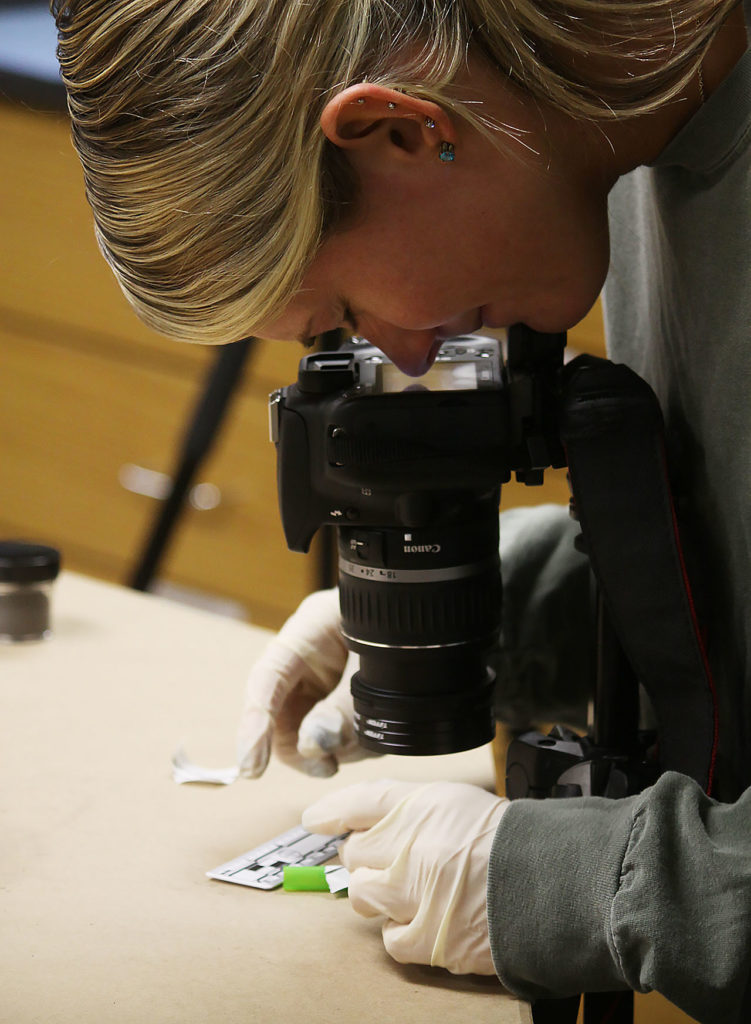
Journey Ewell capturing a fingerprint that was lifted from tape during an activity.
During the week-long course, students learned how to work with various techniques for processing fingerprints at crime scenes. Some of the techniques learned were pulling prints from substrates and other surfaces, processing prints with both chemical and non-chemical techniques, and proper photography of prints for correct evidence collection.
Students learned different basic techniques for processing latent fingerprints and enhancing visible prints from crime scenes. They also received instruction in taking and processing prints from physical evidence collected from the scene.
Senior Alex Williams was very impressed with the class and said the hands-on learning was the best part of the course.
“I loved the class and it was a lot more hands-on,” she said. “It was a great experience and I learned a lot of useful techniques.”
Williams also said her favorite technique was using the Gentian violet powder dye technique.
“It was great and I got some of the best prints,” Williams said.
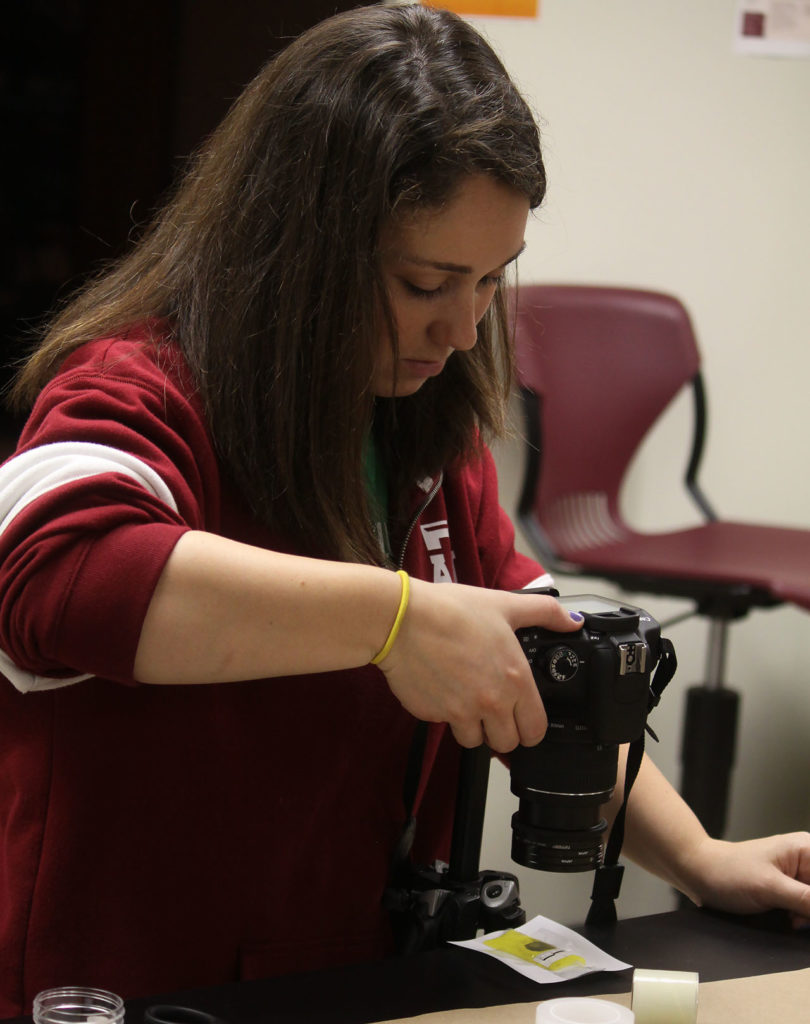
Alex Williams taking photos of a fingerprint that was processed on a piece of plastic. Photo by Rob Williams.
The Forensic and Investigative Sciences degree program at Texas A&M prepares students for careers that involve the collection, preservation, processing and use of evidence and information to solve problems. These careers include law, medicine, homeland security, public safety, political science, environmental quality, agriculture, public health, chemistry, anthropology, physics, computer science and business.
The partnership between the academic Forensic and Investigative Sciences program within the Department of Entomology and the vocational training provided by the Texas A&M Engineering Extension’s Texas Forensic Science Academy is an example of a multi-agency partnership putting students first. This partnership between faculty and students of TAMU’s Forensic and Investigative Sciences program and experts from TEEX’s Forensic Science Academy continues to strengthen the curriculum at Texas A&M and offer students an opportunity to participate in cutting-edge technologies and current field methods.